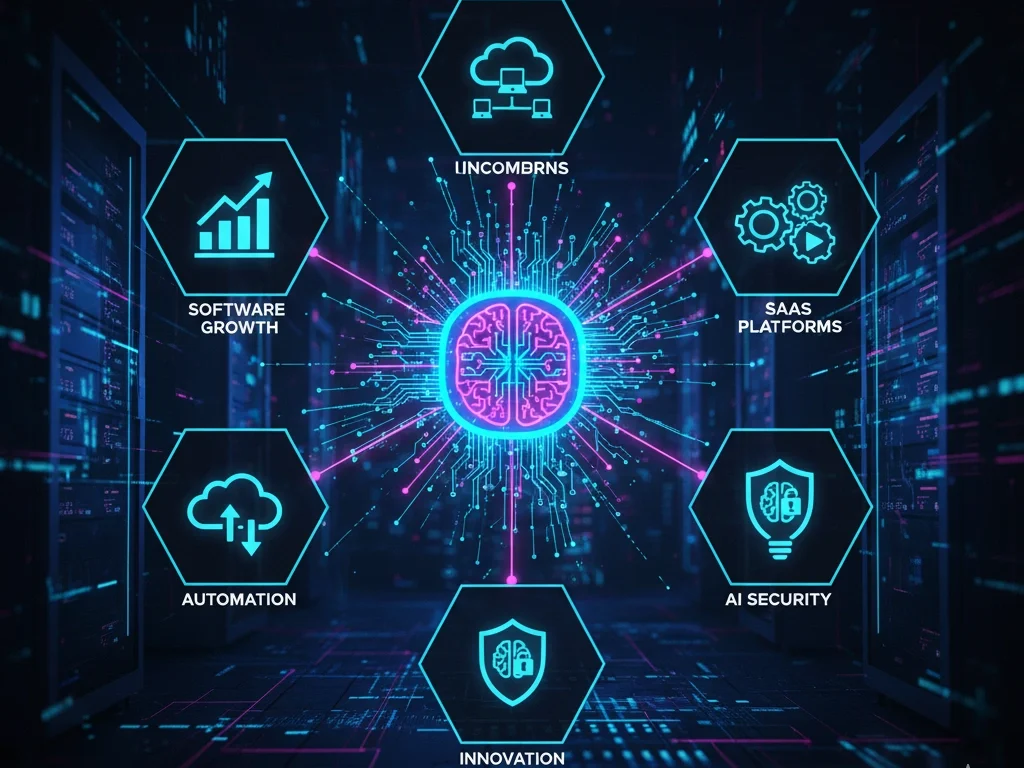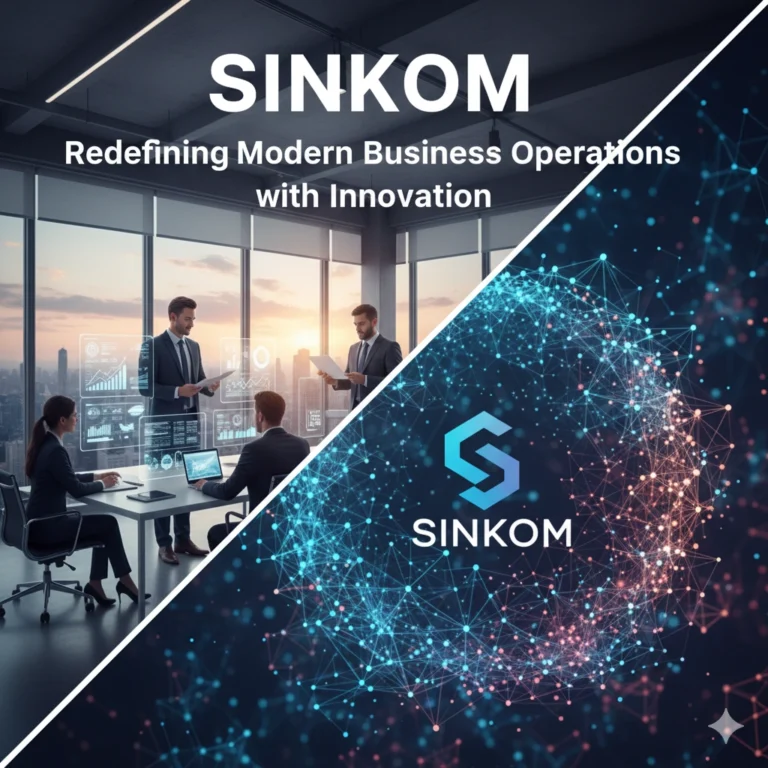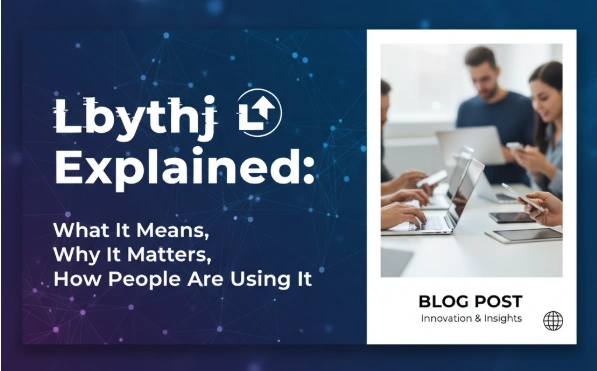AI in Software Industry: A New Chapter of Growth and Innovation
Artificial intelligence has sparked countless debates about its impact on technology, business, and even daily life. Some argue it will disrupt traditional systems, while others see it as a once-in-a-generation opportunity. When it comes to the AI in Software Industry, leading analysts suggest the second view is closer to the truth. Instead of making software obsolete, AI is reshaping and strengthening it, setting the stage for a powerful rebirth.
Why AI is an Accelerator, Not a Replacement
Goldman Sachs analyst Kash Rangan recently explained that AI should not be seen as a competitor to software but as a powerful accelerator. Just as the web browser in the 1990s expanded software rather than replacing it, AI today is unlocking new efficiencies and broader adoption. From smarter automation to predictive tools, AI is turning existing applications into more intelligent and user-friendly systems. Businesses no longer have to abandon their trusted software platforms—instead, they can upgrade them with AI in Software Industry capabilities that reduce complexity and increase productivity.
SaaS Leaders Driving AI Adoption
The companies at the forefront of SaaS are already weaving AI into their products, and the results are promising. Salesforce, for instance, has introduced its Agentforce platform, serving thousands of businesses with AI-powered customer interactions. Adobe has integrated AI into creative workflows, giving designers tools to generate ideas faster. Intuit is embedding AI into financial solutions, streamlining accounting and tax preparation. Meanwhile, ServiceNow is enhancing enterprise workflows with AI recommendations that cut down on repetitive tasks. These firms show that the AI in Software Industry is not just a concept but a reality driving measurable improvements.
Investment Opportunities in Application Software
Despite their importance, many application software companies have seen their stock valuations lag behind infrastructure providers such as Snowflake and MongoDB. This valuation gap presents an intriguing opportunity for long-term investors. As AI adoption accelerates, application software could experience a significant rebound. Analysts argue that once the market recognizes the role of AI in revitalizing application platforms, investor sentiment will shift, leading to higher valuations and growth potential.
The Speculative Edge: CoreWeave’s Bold Move
One company drawing attention is CoreWeave, a pure-play AI hyperscaler that has positioned itself to compete in the cloud computing space. The model is reminiscent of Amazon Web Services in its early days—fast-moving, innovative, and built around emerging demand. However, it comes with higher risk. CoreWeave’s success hinges on its ability to maintain speed-to-market advantages in a field where larger players are constantly expanding. For investors, it represents a speculative bet with both considerable upside and significant risk.
Is the AI Market Overheated?
With so much hype around AI in Software Industry, many wonder if the market is experiencing a bubble. Rangan believes concerns are exaggerated, at least in public markets. He suggests that inflated valuations are more common among private startups, many of which rely heavily on venture capital funding while still working toward sustainable business models. Publicly traded software firms, on the other hand, appear to be undervalued compared to their long-term potential, making them an attractive prospect for careful investors.
The Future Outlook for AI in Software Industry

Looking ahead, AI is expected to make AI in Software Industry simpler, smarter, and more widely accessible. Companies will benefit from tools that can anticipate needs, automate complex processes, and unlock new levels of efficiency. For industries from healthcare to finance, the adoption of AI-enhanced software could reduce costs while delivering better outcomes. Rather than a replacement, AI is an evolutionary step that extends the lifespan and relevance of software companies for decades to come.
Comparison: Application Software vs Infrastructure Software in the AI Era
| Category | Application Software | Infrastructure Software |
|---|---|---|
| Key Examples | Salesforce, Adobe, Intuit, ServiceNow | Snowflake, MongoDB |
| AI Integration | Enhances workflows, boosts automation, personalizes experiences | Provides computing power, scalability, and storage for AI workloads |
| Market Valuation | Currently undervalued, potential for rebound | Stronger valuations, stable performance |
| Growth Potential | High as AI drives adoption and efficiency | Moderate but competitive due to hyperscalers entering space |
| Investor Opportunity | Attractive long-term play, especially with AI tailwinds | Safe but with lower upside compared to applications |
Conclusion
The AI in Software Industry is not about replacement—it’s about renewal. Just as the internet expanded the reach of software decades ago, AI is now amplifying its capabilities, making applications more essential than ever. SaaS leaders are already proving the value of AI integration, investors are beginning to spot opportunities, and companies across industries are ready to benefit from smarter, faster, and more intuitive systems. The rebirth of the software industry isn’t on the horizon—it has already begun.
FAQs
1. Will AI replace traditional software?
No, AI isn’t replacing software—it’s enhancing it. Instead of making software obsolete, AI adds new capabilities like automation, personalization, and smarter insights that make existing tools even more valuable.
2. Which software companies benefit most from AI?
Big SaaS players such as Salesforce, Adobe, Intuit, and ServiceNow are already integrating AI into their platforms. These companies are positioned to benefit because they already serve large customer bases and can roll out AI features at scale.
3. Is there an investment opportunity in application software right now?
Yes. According to analysts, application software stocks are currently undervalued compared to infrastructure software. This creates potential upside for long-term investors as AI adoption accelerates.
4. What is CoreWeave, and why is it considered a speculative bet?
CoreWeave is an AI-focused cloud provider, sometimes called a “pure-play AI hyperscaler.” It’s seen as a high-risk, high-reward opportunity because its success depends on how quickly it can grow before larger competitors catch up.
5. Is the AI in Software in a bubble?
Publicly traded AI-related software companies aren’t in a bubble, according to Goldman Sachs analysts. Overvaluation concerns are more common among private AI startups that rely heavily on venture capital funding.







